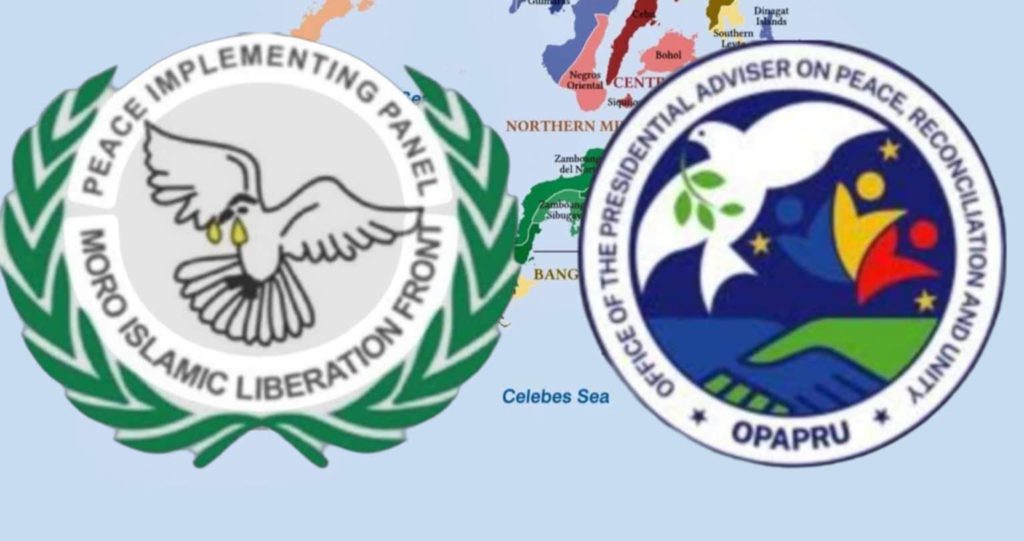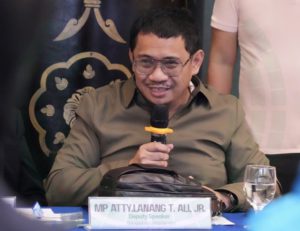
The GPH-MILF Peace Process: A Political and Normalization Tracks

The recent development in the GPH-MILF peace process, particularly the MILF’s decision to halt the fourth and final phase of decommissioning, highlights the complex and multi-faceted nature of achieving lasting peace in the Bangsamoro region. The MILF’s stance, which emphasizes the non-fulfillment of certain deliverables, such as continued housing and socio-economic packages for decommissioned combatants raises important questions about the process’s trajectory and the need for nuanced understanding.
From my perspective, the GPH-MILF peace process operates on two distinct but interconnected tracks: the political track and the normalization track. The political track deals with issues related to governance, leadership, and the political future of Bangsamoro Autonomous Region in Muslim Mindanao (BARMM).The establishment of the Bangsamoro government is the consequence of the Government of the Philippines (GPH ) and the Moro Islamic Liberation Front ( MILF ) Peace Agreement. The normalization track, on the other hand, pertains to the decommissioning of combatants and other peace mechanism agreed by both panels of Peace Implementing Panel.
It is crucial that the parties treat these two tracks separately to avoid conflating issues that pertain to different aspects of the peace process. The MILF’s concerns over the decommissioning process fall squarely under the normalization track, which deals with the implementation of agreed intervention for decommissioned combatants.
The MILF has clearly stated that their argument is on the fulfillment of commitments related to the normalization process, specifically housing and socio-economic packages. This indicates that their apprehension are not rooted in opposition to the change of leadership in BARMM but are instead centered on ensuring that the agreed terms of the decommissioning process are honored.
The issue of the change in leadership within BARMM falls under the political track. The GPH has argued that they have already complied with the agreement, and that recent protests or concerns are merely manifestations of the MILF’s disappointment with the new leadership in which the MILF leadership denied. This separation of concerns is critical to avoid muddling the different issues and to facilitate more targeted and constructive dialogues.
My humble and my personal appeal as peace advocate, is that both panels, the GPH and MILF Peace Implementing Panel should convene immediately to address these issues directly. There needs to be open communication focused on what is needed to serve the common good and the welfare of the Bangsamoro people. It is vital that the peace process is not derailed by disagreements over separate issues, but instead, that both parties reaffirm their commitment to the agreements while working through the differences.
The GPH-MILF peace process is a complex but vital endeavor that requires patience, clarity, and a willingness to treat each issue in its proper context. The separation of the political and normalization tracks should be maintained to prevent misunderstandings and to uphold the integrity of the peace process. Only through sincere dialogue and mutual understanding can sustainable peace and progress in the Bangsamoro region be achieved. It is also important that both sides recognize the importance of trust-building measures and confidence in the process, ensuring that setbacks are viewed as part of a larger effort toward peace rather than insurmountable obstacles.
Furthermore, international observers and stakeholders should support transparent communication channels and provide neutral facilitation when necessary.
Ultimately, patience, diplomacy, and a shared commitment to peace will be the key drivers to overcoming current tensions. The focus should remain on the long-term well-being of the Bangsamoro people, and the peace process must be preserved as a vital instrument to promote stability, development, and reconciliation in the region. Allah knows best. (Note: This article is shared by BMN/BangsamoroToday with the author’s permission, Abdullah P. Salik, Jr.)

